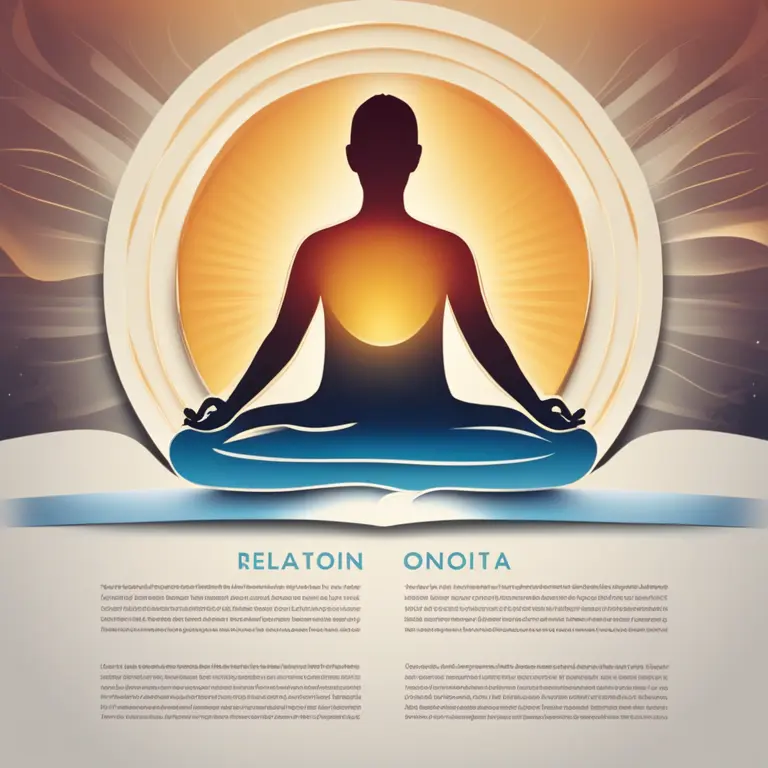
Easing Anxiety With Meditation Practices
Discover how the timeless practice of meditation can alleviate anxiety, offering a serene refuge for the mind in our fast-paced world.
article by Hina Kurosawa
The Rise of Anxiety in the Modern World
In recent times, the prevalence of anxiety has surged, becoming a silent epidemic affecting millions globally. The hustle of modern life, the inundation of information, and the ever-present digital connections leave little room for tranquility. The future, often clouded with uncertainty, exacerbates worry, creating a collective yearning for reprieve. As we advance into 2024, it's clear that novel approaches to mental well-being are not just desirable but necessary. Meditation emerges as a beacon of hope, a sanctuary for the agitated mind lent credence by both ancient wisdom and contemporary research.

Meditation: A Proven Antidote to Stress
Meditation is not a newfound fad but a practice steeped in history, with roots reaching back thousands of years. Its longevity is a testament to its efficacy, particularly in combating stress, a known catalyst for anxiety. What science has uncovered recently only reinforces what practitioners have experienced firsthand: meditation can significantly reduce levels of the stress hormone cortisol, thereby easing the physical and emotional manifestations of anxiety. This relaxation response is a powerful counterbalance to the fight-or-flight reaction that so often typifies our daily stressors.

The Mechanisms Behind Meditation's Benefits
How does meditation wield such a positive impact on anxiety? The answer lies in its ability to train the brain. Neuroplasticity, the brain's capacity to rewire itself, means our mental patterns and responses are malleable. Through consistent meditation, individuals can cultivate a mindset less reactive to stress and more resilient in the face of adversity. Functional magnetic resonance imaging (fMRI) studies have shown that meditation can decrease activity in the amygdala, the brain's threat detection center, leading to a calmer emotional state.

Accessible and Adaptable for Everyone
One of the most compelling attributes of meditation is its accessibility. Regardless of age, cultural background, or socioeconomic status, meditation is an inclusive practice. There are no expensive tools required—just a few moments of time and a quiet space. Additionally, meditation can adapt to personal preferences and needs, whether through guided sessions, focused breathing, or mindfulness exercises. This universality makes it an invaluable resource for managing anxiety amidst the diverse tapestry of the human experience.

A Daily Ritual for Anxiety Management
Incorporating meditation into daily life can transform it into a vital ritual for anxiety management. When practiced regularly, it provides a dependable anchor during turbulent times. Encouraging the cultivation of presence, meditation redirects attention from the worries of past and future to the here and now, a technique known to reduce symptoms of anxiety. By fostering a practice of presence, the weight of anxiety can be lifted, offering a clearer perspective and a more grounded existence.
Integrating Meditation into Modern Life
As we march forward, it's essential to find harmony between age-old practices like meditation and the rapid pace of technological advancement. Apps and online platforms are now offering an array of digital resources, making the practice more accessible and fitting to contemporary lifestyles. The fusion of meditation with biofeedback and virtual reality is on the horizon, promising even greater personalization and effectiveness in treating anxiety. The potential of these advancements can make meditation an indispensable tool in our collective mental health arsenal.
Published: 1/14/2024
Modified: 1/15/2024
More predictions
Come back here soon to learn more about yourself and your future


Healing Through Mindfulness: Meditation & Trauma Recovery
Mindfulness meditation offers a powerful tool for individuals seeking solace and healing from traumatic experiences. Discover how this practice can aid in the journey towards inner peace.


Easing Loneliness with Mindfulness Meditation
Explore how mindfulness meditation can provide solace and connection to alleviate the feelings of loneliness.


Mindfulness Meditation Basics for First Graders
Introducing foundational mindfulness meditation practices to instill calm and focus in first-grade students.